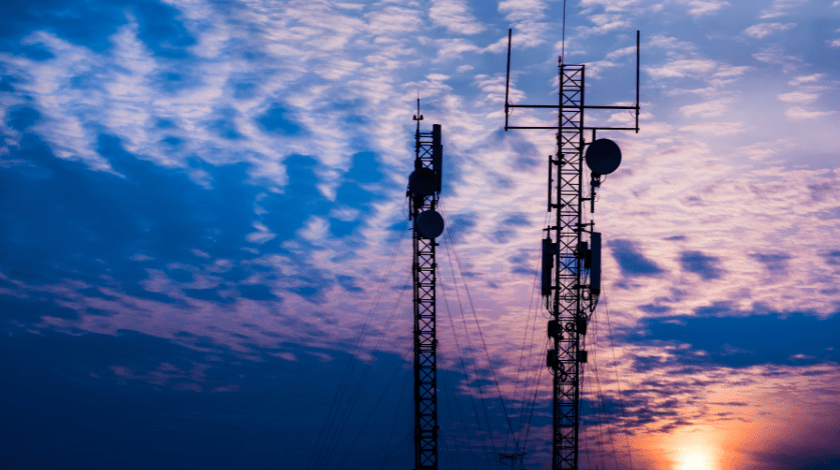By Cristal Mojica
Long-awaited federal and state broadband infrastructure dollars are being distributed throughout California’s communities. Now, more than ever, philanthropy’s direct support of community broadband networks is urgently needed.
At the top of every digital equity advocate’s priority list this year is ensuring that public infrastructure dollars go to the spaces where they are needed the most. At the same time, we want our communities to have the capacity to make those dollars go as far as possible. One opportunity to positively affect this outcome presents itself in philanthropic entities directly supporting community broadband networks. Such support goes beyond applying for grant dollars and bridges into the stage of successfully implementing the funding.
We know we cannot achieve digital equity and California’s goal of broadband for all without ongoing collaboration between public, private, and community entities. Last month, California Department of Technology’s Broadband for All newsletter highlighted the importance of partnerships and private funding in meeting our goal of affordable, reliable connectivity for all Californians. The newsletter cited Michelson 20MM Foundation’s 2024 Digital Equity Spark Grant round as an example of philanthropy leading the way in directly supporting community networks. This funding cycle included projects from Destination Crenshaw, CHIRLA, and City Heights CDC at different stages of development. Each of the three projects is led by California organizations championing digital equity and community ownership in historically underserved and digitally redlined communities.
Why Are Community Broadband Networks Key to Achieving Broadband for All?
Community broadband networks are publicly-owned or locally-controlled networks that provide internet access to communities. They can be built by municipalities, cooperatives, or through public-private partnerships.
Areas with higher rates of poverty in urban communities are left underserved by large internet service providers (ISPs). With less of a guaranteed return on investment, these large providers may delay upgrading communities to newer infrastructure. This leaves our communities with service quality that cannot meet their needs, when available at all, and few alternatives.
Community broadband networks across the nation are helping address these challenges, and have proven beneficial to communities through:
- Improving internet quality by challenging private ISPs to deliver faster and more affordable internet. At the same time, they must adequately maintain aging or neglected infrastructure.
- Spurring competition by increasing the number of ISPs available to communities. This can compel established providers to lower costs for consumers while increasing connection speeds. Doing so will retain existing customers and draw in new customers.
- Increasing the capacity of local businesses and entrepreneurs through affordable, high-quality connectivity. This broadens their business reach, increasing their customer base and ability to reliably serve them, and diversifies business products and services.
Outside of California, municipalities in Colorado, Maine, Minnesota, New York, North Carolina, and Vermont have invested in the development of community broadband networks and have examples of flourishing public-private partnerships.
What Is California Philanthropy’s Role and Responsibility in Supporting These Projects?
Michelson 20MM Foundation’s Digital Equity Initiative has prioritized funding community projects that build workforce and advocacy capacity. Our focus is on historically redlined communities and efforts that provide technical assistance to community-owned networks throughout the application, planning, and implementation phases of broadband infrastructure buildout.
We strongly believe that philanthropy dollars are key to long-term sustainability of digital equity work. Such funding ensures a future where all of our communities have access to the myriad of opportunities that come with equitable connectivity. Our communities need resources to effectively apply federal and state funds and manage the infrastructure.
More broadly, there is an opportunity across the philanthropy sector to ensure that resources distributed achieve their intended goal. Traditionally, they are directed to providing critical services and programs affecting healthcare, education, job opportunities, and more. Now, philanthropy can help them reach their targeted populations, rather than be hindered or altogether deterred by a lack of connectivity.
If a foundation currently prioritizes youth, education opportunities, and community health outcomes, it should prioritize digital equity. If a foundation advocates for civic engagement and protecting civil rights, it should invest in digital equity. The effectiveness of most philanthropic efforts is impacted by digital access. We know that digital equity is not possible without both affordable connectivity and community resource ownership.
Philanthropy can provide a critical supplement to federal and state dollars. It can ensure that communities who are tasked with using the funds to create a once-in-a-generation solution are equipped with the tools to make it a reality.
Learn more about the projects that are leading community-driven and owned broadband infrastructure solutions in California, and how you can support them:
- Los Angeles
- CHIRLA (Planning and Implementation)
- Destination Crenshaw (Planning and Implementation)
- San Diego
- City Heights CDC (Planning)
- State-wide
- Tribal Broadband Bootcamps (Workforce Capacity Building)
To join the Digital Equity Pooled Fund alongside other California foundations in future collective philanthropic action to advance digital equity and inclusion, reach out to Cristal Mojica, Senior Program Manager of the Digital Equity Initiative.
Michelson 20MM is a private, nonprofit foundation working toward equity for underserved and historically underrepresented communities by expanding access to educational and employment opportunities, increasing affordability of educational programs, and ensuring the necessary supports are in place for individuals to thrive. To do so, we work in the following verticals: Digital Equity, Intellectual Property, Smart Justice, Student Basic Needs, and Open Educational Resources (OER). Co-chaired and funded by Alya and Gary Michelson, Michelson 20MM is part of the Michelson Philanthropies network of foundations.
To sign up for our newsletter, click here.

